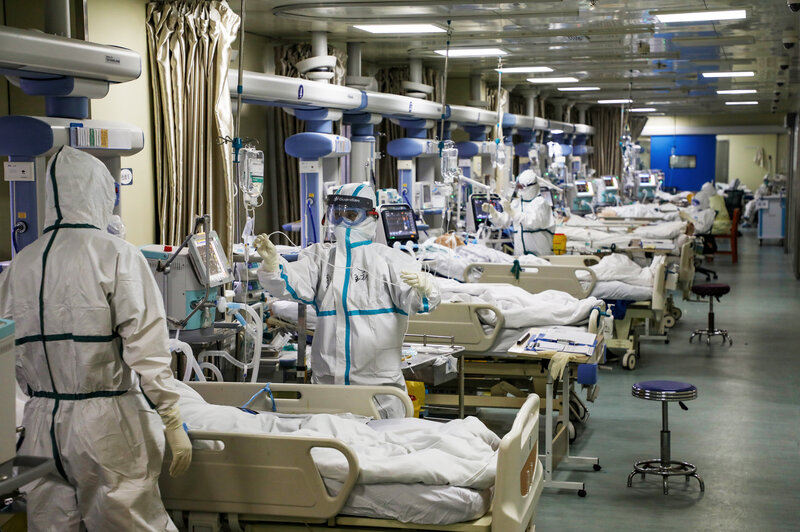The number of COVID-19 cases in China has increased to over 25,000, with more than 500 of those cases occurring in Beijing. As a result, city officials have advised millions of residents to spend the weekend at home and undergo daily testing.
After several districts in the city issued advisories on Friday, calling for less cross-district personnel flow and avoiding unnecessary trips during the weekend, Beijing wore an eerie look on Saturday, with most of its residents staying home.
An official from Chaoyang, the city’s most populous district, advised residents to stay inside over the weekend.
The sprawling district is home to all of the top government offices, commercial hubs, and thousands of residential communities.
According to official media here on Saturday, the Chaoyang district government also advised residents not to leave the area unless absolutely necessary, and if they do, they must provide negative nucleic acid test results obtained within 48 hours.
Following Chaoyang, the districts of Dongcheng, Xicheng, Tongzhou, Yanqing, Changping, Shunyi, and Haidian issued letters urging people to reduce cross-district personnel flow and avoid unnecessary trips on their official social media accounts.
Following the current epidemic prevention and control measures, some of the city’s major shopping malls have also suspended dining-in services.
According to official data, Beijing reported 515 COVID-19 cases on Friday, while the Chinese mainland recorded 25,000 cases, which is very high by Chinese standards.
There have been periodic spikes in coronavirus cases in almost all Chinese cities over the last two years, resulting in lockdowns and disruptions to people’s lives, supply chains, and the economy.
There have been reports of sporadic public protests in Guangzhou, China’s industrial city.
Early this month, China modified its zero-COVID policy by doing away with its much-criticized ‘circuit breaker’ policy of suspending international flights if any positive COVID-19 cases were detected on arrival and cut the quarantine time for international travelers from 10 to eight days.
With continued spikes in the virus, observers doubt whether China will further modify its COVID-19 policy to gradually open up to the world to revive its economy.
Also Read: Salt Pan Workers Anticipate An Improved Future Post Gujarat Election












